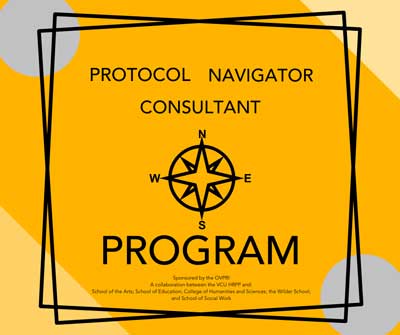Develop Your Idea
All successful grant proposals start with an idea that is thoroughly researched, well-planned and of course fundable. Investing significant time into this step will lay the foundation for a successful grant proposal in the future. Below are some suggested steps and resources to help CHS faculty get started.
Suggested Steps
Feel free to use this template. A concept paper helps researchers start to articulate the questions they are asking, why they are asking them, how they will go about answering them, and who or what resources are needed to answer them, etc.
Concept papers, once polished, can also be extremely helpful for communicating with project officers. Faculty should not contact a project officer unless they have a one to two page concept paper ready to be shared and reviewed.
Getting a concept paper ready for sharing can be accomplished by circulating drafts among mentors and colleagues, both in and outside of VCU, who can provide valuable feedback.
While drafting a concept paper, start developing an elevator speech about your research. Having an elevator speech prepared and memorized will make encounters with potential funders and collaborators more productive as you will ideally make a lasting impression. You may be contacting them in the future when you are preparing to write and submit a grant proposal.
Resource: Deconstructing the elevator speech
If new to grant writing, start becoming familiar with the process so you can plan ahead (see suggested resources at the bottom of this page). Preparation of the grant application alone can take on average 80 to 120 hours, which does not include the development that needs to occur beforehand. Fortunately you will most likely be working with a team of collaborators and the CHS Sponsored Programs Office is available to help.
It is also important to be aware that approaches to academic writing and proposal writing differ greatly.
Relationships with collaborators do not form overnight and need to be fostered. As you are working on your concept paper, start thinking about the expertise or partnerships you will need at the table and create a list of potential collaborators. Start conversations with these individuals or entities early so you can determine their interest and availability, and begin to define their role and contributions.
Tip: Becoming familiar with the Centers/Institutes at VCU may help you identify potential collaborators.
Suggested Resources
- Need assistance writing a literature review? Check out resources from VCU Libraries.
- Just getting into grant writing? Read a book or visit the Office of Research and Innovation for more resources on getting started.
- Also, review this checklist for an overview of the grant writing and development process.
Other Recommended Reading

Protocol Navigator and Consultant Program
Conducting human subject research at VCU? Feeling stuck and don’t know where to start? Request a consultation from the new and exclusive Protocol Navigators and Consultants (PNC) pilot program! PNCs are faculty from your school who have been specially trained to assist other researchers in navigating the human research approvals process at VCU. The pilot program is exclusive to select schools and colleges on the Monroe Park Campus and is designed to assist you (i.e., VCU researchers) in navigating the human research approvals process at VCU.